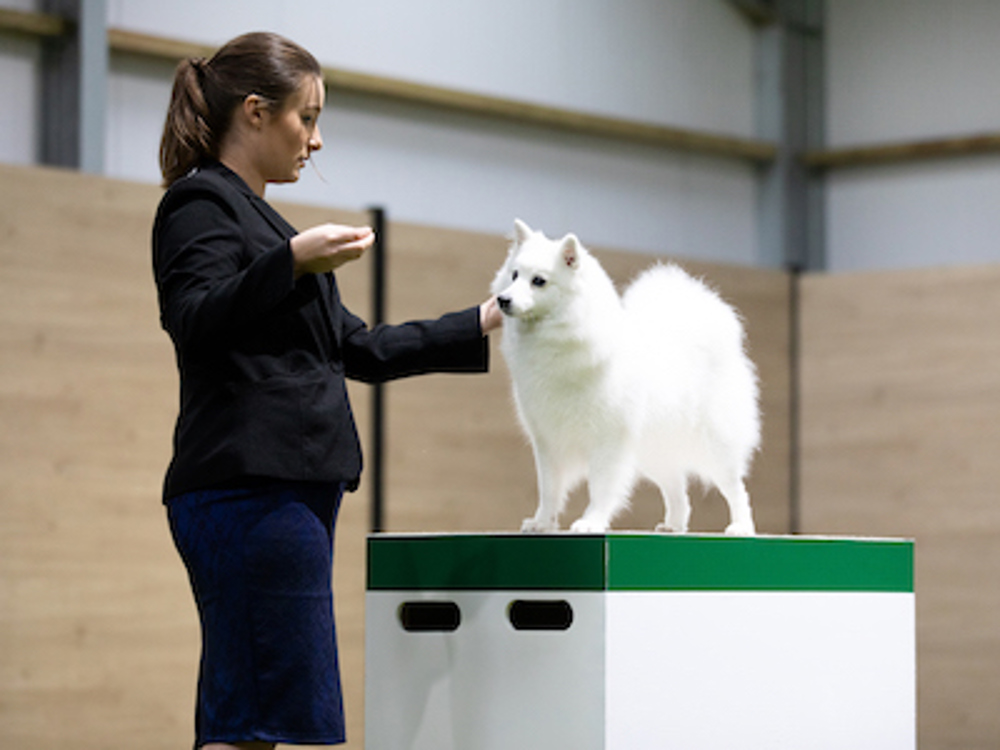
Canine welfare management and training
These guidelines set out the obligations that show and event organisers, clubs, trainers/instructors, owners/handlers have for the welfare of dogs taking part in canine activities licensed by The Kennel Club.
Aim
The aim of the guidelines is to ensure that dogs' welfare takes precedence over all other demands and at all stages during the preparation and training of the canine athlete for, and during, competitive and non-competitive canine activities.
Training
- Training must be compatible with good athlete management and must not compromise welfare
- Training must not cause physical or mental suffering
- Handlers and owners should ensure that dog training instructors have the appropriate training and experience to ensure dog and handler safety at all times. They should also be up to date with the latest training techniques and practices
- In addition to these guidelines, dog training instructors should comply with Regulations for The Kennel Club Accredited Instructors
- Dogs must only undergo training that matches their physical capabilities and level of maturity. (Conditions such as concurrent cardiovascular, respiratory or musculoskeletal disease, along with obesity, may preclude the dog from taking part in athletic activity)
Equipment, facilities and training venues
- All equipment used during training must be of a suitable standard and construction where applicable
- A risk assessment should be carried out at training venues with particular attention being paid to the training surface. The surface must be suitable for the canine activity concerned and must not be in a condition or construction that may cause injury
- All obstacles and courses must be designed with the safety of the dogs in mind
Canine health status
- Dogs must be fit, competent and in good health prior to taking apart in training or in competition
- No dog showing symptoms of disease, lameness or other significant ailments or pre-existing clinical conditions should compete or continue to compete when to do so would compromise welfare
- For pregnant or recently whelped bitches, competition should not be allowed after the fourth week of gestation. Bitches should not compete while still lactating nor until such a time that cardiovascular and muscle fitness has been restored
- Veterinary advice must be sought whenever there is any doubt about a dog’s welfare or fitness to compete
Nutrition and diet
- Consideration should be given to the dietary requirements of the canine athlete; the dog’s diet should be designed to maintain healthy muscles and general body condition. (Rather than adopting a healthy weight range which can be meaningless due to individual variations in dogs, the appropriate body condition scores should be adopted, these are not susceptible to individual variation)
Injury management, doping and medication
- After any treatment for injury, sufficient time must be allowed for the dog to recover fully before training or competition is restarted
- For more serious injuries, owners/handlers must ensure the prescribed rehabilitation programme is followed prior to training or competition restarting
- Doping of dogs to enhance performance and the use of medication to mask injuries is considered to be a serious welfare issue and will not be tolerated
Events and facilities
- Competitive events should not at any time compromise a dog’s welfare
- A risk assessment should be carried out before an event starts (and during the event if conditions change materially after it has started) to ensure ground surfaces on which dogs are exercised and compete are sufficiently well maintained to reduce factors that could lead to injuries; e.g. deep mud or sand, rutted surfaces, slippery surfaces, abrasive surfaces
- Competitions should not take place in conditions likely to compromise the safety of the dogs. However, owners/handlers remain responsible for assessing whether the conditions are appropriate for them to compete with their dog
- Provision must be made for cooling dogs quickly after competition
- Adequate kenneling (if appropriate) and exercise areas should be provided at competitions
- Owners should ensure that dogs have access to water and shelter at all times
Availability of veterinary cover at shows
- Access to veterinary expertise should always be available for an event by arrangement with a local veterinary practice
- It is recommended that one of the show officials has first aid training for dogs or that a vet nurse is available during the show
- For larger events, consideration must be given to having veterinary cover on site
- If a dog is injured during competition, the dog must be retired and a veterinary check carried out as soon as possible
- People officiating or working at competitions and offering advice on injury, or welfare diagnosis, or health assessment services must conform to the Veterinary Surgeons Act
Retirement from canine sports due to old age or injury
- Following retirement from competitive sport, every effort should be made to ensure the ongoing welfare and care of the dog
General advice to owners/handlers regarding fitness for purpose
- Advice should be sought on the basic principles of fitness and conditioning for canine athletic performance. As each individual is different and starting from a different base line of fitness, this could be difficult to achieve safely. Basic advice regarding warming up, cooling down and approximate periods for conditioning an individual could be provided
Breaches of the guidelines
By entering an event licensed by The Kennel Club, competitors acknowledge that they will do their utmost to comply with these voluntary guidelines. Significant or repeated failure to comply with the guidelines may result in the show management asking competitors to leave the showground. Handlers who have a complaint about the actions of others should speak to the show secretary who will lodge it in the incident book and it will be reported to The Kennel Club. Significant or repeated failure to comply with the guidelines, when not occurring at a event licensed by The Kennel Club, can be reported directly to us.
